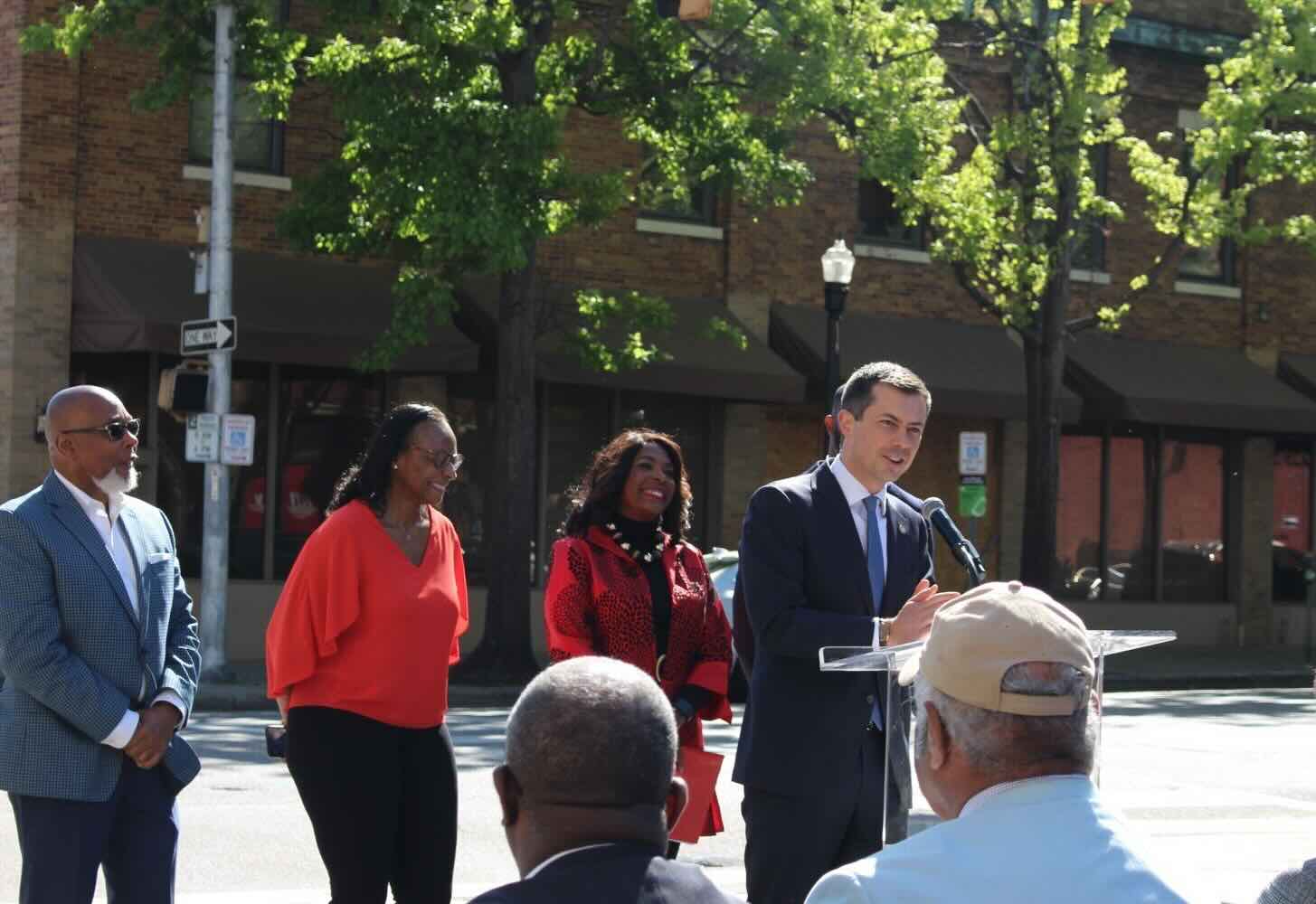ImpactAlpha, Jun. 8 – Sunlight is often the best disinfectant.
In the aftermath of the murder of George Floyd in 2020, a simple tool to identify and weed out discriminatory practices at corporations became a favorite of shareholders looking to mitigate racial equity risks in their portfolios.
Now, investors are looking to deploy “racial equity audits” in the $4 trillion municipal bond market, which is still burdened by systemic inequities.
Labor unions, public pension funds and other institutional investors have filed dozens of shareholder resolutions with public companies in recent years calling for such racial equity audits. The third-party assessments spotlight the adverse impacts a company’s products and practices have on communities of color – and ways to remedy them.
The proposals have succeeded or triggered voluntary action at some of the largest corporations, including Amazon, Google, Walmart, BlackRock, Facebook, Citigroup and JPMorgan Chase. Six racial equity audits received majority support in 2022, with average support increasing from 33 to 44% from 2021 to 2022.
“The racial equity audit is the most rapidly taken up shareholder engagement strategy, maybe ever,” says David Wood of Harvard’s Initiative for Responsible Investment, which has been working with institutional asset allocators to explore racial equity strategies across asset classes, including municipal bonds. As investors sought to nudge corporations toward equity, he says, the audit “went from zero to sixty.”
Go deeper on The Call. Join Harvard’s David Wood, Renaye Manley of Service Employees International Union, and other Agents of Impact on next week’s ImpactAlpha Call, “How asset allocators are driving racial equity in municipal bonds,” Wednesday, June 14, at 10am PT / 1pm ET / 6pm London.
Already, racial equity audit proposals have exposed risks to municipal finances that have been hiding in plain sight.
Proceeds of Chicago-issued municipal bonds, underwritten by Goldman Sachs, have been used to pay hundreds of millions in police brutality settlements. A report from Nathan Cummings Foundation called the bonds “a transfer of wealth from communities – especially over-policed communities of color – to Wall Street and wealthy investors.”
The bonds were cited as part of a shareholder proposal this year requesting a racial equity audit of the investment bank. The proposal, which ultimately failed to win a majority of votes, was one of more than two dozen resolutions filed in 2023 requesting racial equity and civil rights audits. (A Goldman Sachs spokesperson pointed ImpactAlpha to a Mar. 2023 racial equity audit conducted by law firm WilmerHale on just three of the bank’s initiatives: One Million Black Women, the Fund for Racial Equity, and 10,000 Small Businesses.)
Still, the current racial equity audit “doesn’t have specific instructions” for assessing risk in fixed income portfolios, says Wood. “It’s there, but it’s mushy. We can make it more precise.”
The plan from Wood and other proponents: tailor the racial equity audit to assess the fixed-income portfolios of banks and other financial institutions. “They can be given a very specific set of instructions for what you’re supposed to look at in your muni desk.”
Auditing racial equity
Racial equity is good for the “long-term sustainability of our economy, our cities, our governments and our corporations,” says Renaye Manley of Service Employees International Union, a union with two million members who are participants in 55 public sector pension funds.
Manley has played a key role in the growing adoption of racial equity audits. SEIU’s $1.5 billion Master Trust, a collection of six benefit funds, and activist shareholder organization SOC Investment Group, have spearheaded the effort on shareholder proposals calling for audits.
“We wanted to do the work to educate investors and create accountability mechanisms that yield” such sustainable outcomes, she says.
SEIU had long worked on corporate board diversity initiatives. “We were talking to investors, to pension funds and some of the large asset managers. What we were hearing directly is that the board diversity wasn’t yielding the impact” on programs, policy and operations.
Following the murder of George Floyd, Manley didn’t believe corporations would be willing, or able, to follow through on their commitments to racial justice.
Activists had earlier pressed Starbucks and Airbnb to conduct racial equity audits. Airbnb’s audit surfaced awareness of a booking success rate gap between guests perceived to be Black and guests perceived to be white. The gap was slightly reduced when Airbnb tweaked its platform to reveal a guest’s profile picture only after the host accepts a reservation.
“We thought, ‘What if we brought racial equity audits into the shareholder space?’ We had no idea that it was going to resonate in the way that it has.”
Manley says most corporations, whether they admit it internally or publicly, do want to be solutions-focused. “They don’t want to operate in blind spots. They want to be able to mitigate risk.”
Manley is now talking to investors about applying the racial equity audit to fixed-income strategies of banks and large asset managers. “It doesn’t make sense to build a new wheel,” she says. “We’re going to ride the one we’re on and see if that type of alignment makes sense.”
Follow the issuers
The top down strategy of engaging allocators dovetails conveniently with the bottom-up strategy by Public Finance Initiative to nudge municipal bond markets to address systemic inequities.
The Initiative recently released a framework for municipal bond issuers that lifts up the best practices for embedding racial equity. Such practices, say Wood and Manley, could inform the racial equity equity audit of fixed-income managers.
The cities of Denver and Beverly, Mass. have even conducted their own racial equity audits, says Lourdes Germán, who leads the Public Finance Initiative. “They were driven by a real commitment to drive forward a city-wide commitment to racial equity as a strategy.”
Issuers at the forefront of addressing racial equity are going beyond use of proceeds, says Germán. They demonstrate jurisdictional commitment to racial equity, backed by policies and practices. They demonstrate an awareness of the root causes of racial inequity and strategies aligned to address it. And there’s race-conscious community-engagement efforts for both the project and capital planning.
Germán warns that such audits could inadvertently lead to market penalties for issuers who can’t meet best practices due to a lack of resources. “A municipality could be committed to racial equity, but that commitment could manifest in different ways and be at different stages of maturity.”
Institutional appetite
A racial equity audit “is fundamentally about risk management,” SEIU and SOC Investment Group write in a briefing. “Investors need an objective evaluation of how these issuers are measuring their progress on addressing these structural risks.”
Just last year, the $242 billion New York State Common Retirement Fund, the third largest public pension fund in the U.S., backed proposals for racial equity audits at more than18 companies, according to its 2022 proxy voting report.
In 2021, the NY public pension plan filed a proposal requesting an independent racial equity audit at Amazon. More than 44% of the company’s shareholders supported the proposal. Last year, NY Common withdrew the proposal after Amazon agreed to conduct and publicly release an independent racial equity audit, led by former U.S. Attorney General Loretta Lynch.
New York State Comptroller Thomas DiNapoli, the sole trustee responsible for the fund, said for Amazon to prioritize and examine its impacts on racial equity “is a major step forward in ensuring equal opportunities and treatment in corporate America.” DiNapoli commended Amazon “for listening to its shareholders who understand that fostering diversity, equity, and inclusion is good for business.”
Would the NY public pension plan back a racial equity audit of the fixed-income portfolios at State Street, Citi and other banks? In an email exchange, the fund’s Andrew Siwo declined to take a position.
“Our constitutional obligation is to maximize returns at a prudent level or risk for the sole interest of beneficiaries,” Siwo told ImpactAlpha. “There is no higher objective as a steward of the public’s capital.”
Though still nascent as compared to other shareholder engagement strategies, racial equity audits of fixed-income portfolios could surface risks and opportunities to enable fiduciaries to maximize risk-adjusted returns, says Harvard’s Wood.
“It’s good risk management at the level of the institution.”











